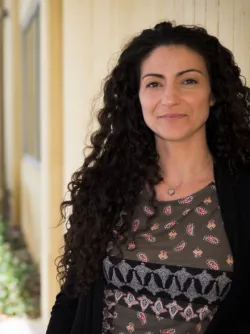
Protecting marine megafauna in the global ocean
I will present the MegaMove project resulting from a unique transdisciplinary collaboration between 378 biologists, ecologists, physicists, oceanographers and modelers , as a pathway to answer this topical question with a focus on marine megafauna. Presented by Dr Ana Sequeira
Speakers
Event series
Content navigation
RegisterDescription
I will present the MegaMove project (www.megamove.org; endorsed by the UN Ocean Decade), resulting from a unique transdisciplinary collaboration between 378 biologists, ecologists, physicists, oceanographers and modelers (from 285 institutions across 49 nations), as a pathway to answer this topical question with a focus on marine megafauna. Marine megafauna include species with key roles in maintaining the ecosystems balanced and can be considered sentinel species. MegaMove makes use of the largest tracking dataset ever compiled across marine megafauna taxa globally to detect areas of ecological importance. These areas could be selected to prioritise protection, under the current push for increasing marine protected areas as part of recent resolutions from the Kunming-Montreal Global Biodiversity Framework to protect at least 30 % of the ocean, which is a necessary step towards reversing the loss of marine biodiversity. MegaMove is well positioned to identify key areas used by marine megafauna species, across flying birds, cetaceans, fishes, penguins, polar bears, seals, sirenians and turtles. The MegaMove data can be used to reveal the severe overlap between marine megafauna space use and major global anthropogenic threats across the ocean, including commercial fishing, shipping, noise, plastic, and climate change.
About the speaker

Associate Professor Ana M. M. Sequeira, a marine ecologist based at the Australian National University, leads breakthrough research in the field of marine megafauna movement and conservation. She is a 2020 Pew Marine Fellow and the founder, Lead Coordinator and Research Director of MegaMove, a decadal project endorsed by the United Nations Decade for Ocean Science focused on pushing forward a new frontier in dynamic marine spatial management to improve marine megafauna conservation and show how big data in marine telemetry can be synthesised and translated into ecologically significant behaviours, addressing global scientific and societal problems highlighted in the Australian science and research priorities. Ana also continues to be an Adjunct Research Fellow with the University of Western Australia (UWA) Ocean’s Institute. She is the Group Leader of ‘Statistical Modelling and Marine Megafauna Conservation’.
Our dynamic group focuses on the development of innovative scientific analytical tools and application of well-established methods to address topical questions about marine conservation. Our research covers a range of topics, from predicting patterns of marine species occurrence and investigating marine megafauna movement, to the development of custom-made modelling tools to understand marine processes and assist sustainable development. We are particularly interested in providing information of relevance for marine conservation management. Check out our Sequeira Lab website and read more about our research projects here.
Location
Online
